Click to read the article in Turkish
Acquitted four times but the judgments of acquittal reversed each time, academician and sociologist Pınar Selek is put on trial for the fifth time with the same accusation related to an event 25 years ago.
She was tried, and acquitted and the acquittals were reversed four times in relation to the Egyptian Bazaar explosion in 1998.
The international delegation coming to İstanbul to observe the hearing of the new case said in their statement that this is a trial "which all started because she rejected to give the names of the persons she talked to for sociological research in 1998."
The hearing will be held tomorrow (March 31) in İstanbul. Selek will be following her trial in France, at the Human Rights Association in Paris, but dozens of activists, academicians, and friends from Turkey, France, and many other countries will be in the courthouse to be in solidarity with her and to observe the hearing.
"To continue with the optimism of the will"
She says that she is trying to continue with the optimism of her will.
Her answer to the ones who tell her that she should not be writing on sensitive issues is "I cannot leave aside the poem of my life."
Pınar Selek has been in France for many years now, not able to come to her homeland for more than ten years. She is an academician at the Cote d'Azur University in Nice.
"Each word comes out of her mouth in excitement. When I listen to her, I do not feel like listening to a woman who was forced to leave her country, but a woman who has chosen all troubles in this world as an arena of struggle."
Evrim Kepenek from bianet who interviewed Selek also reflects on her feelings while reporting what Selek said on how she is preparing for this fifth trial.
"When she speaks, I do not feel like listening to a woman who will be tried again after being acquitted four times because the judgment was reversed each time, but a woman who will be the judge."
Selek who lives in France today talked to bianet before tomorrow's hearing.
"I have two countries now. Maybe I will return to Turkey one day but I will always have a link with France. I am a bridge. I will be watching my trial in a venue of historical importance for those struggling for justice, at the Human Rights Association in Paris," she said.
You had to leave your country. You had to leave your beloved, your family. How do you feel?
I try not to think too much about how I feel. The reason is something I repeat telling. As political scientist Antonio Gramsci says, it is necessary to bond "the pessimism of the mind and the optimism of the will." For the last two weeks, I stopped my mind. I am trying to move on only with the optimism of my will. Of course, this is not easy.
But at the same time, the mind is not only a source of pessimism. My mind also allows me to analyze my situation from a social perspective.
"There were people who embraced me in prison"
How for example?
For instance, when I was first put in prison, there were larger dormitories in prison then, not cells like today, therefore I was very lucky. I was subjected to severe torture. When put in prison I met many people who helped me and embraced me.
They all had their different stories of being tortured. A while later, you start to worry not about yourself but about others.
You see that you are only a tiny spot in a very large scene. And this makes it so much easier. Someone else's pain does not heal your pain but allows you to analyze your pain.
You understand that you are not the only one whose rights are violated.
When I had to go abroad, when I had to "tear apart" from those I love, let's say... This word, "tearing apart" is very important because one part of you remains back there.
The same about your relationship with the environment around you. As long as you produce, you live, life means producing anyhow; slowly your location becomes you. And you become the location.
It is the same thing when someone you love dies, a part of that person remains with you. Inevitably, you become her/him, and he/she becomes you. It is the same in your relations with the pets, with people, and with the location, too. Therefore I was deeply hurt the first time I had to leave, during the first tearing apart.
"Borders have no meaning to me"
How did you feel?
İstanbul, the ones I love, moved together with me. And one more thing.
I am an anti-militarist. Therefore an anti-nationalist. The national borders do not have any sacred meaning to me. It is not important on which side of the border I am at.
It is only being used to, getting used to places. I knew how to live when I was in Turkey. I knew the codes. I knew how to act.
Therefore it was difficult. Being an activist has cost me. But also helped me. As soon as I went abroad, all my friends in Turkey, the feminists, LGBT people, anti-militarists, Kurds, and Armenians, all told everyone "Do not leave Pınar alone," and I fell into a world of solidarity.
Can you tell us a little about your life in France?
The European borders and the migration issue are very important here.
And also all offenses of neoliberalism; there is terrible police violence confronting the struggles waged here. I am in the movement. These are what I tell about in my book called "Ants and Cicadas".
In the meantime I get these messages: "Pınar be careful." My former editor called me and asked what I was writing about. And told me, "No, these are very dangerous issues, you need to write a book on Turkey." I had to ask, "How would you dare?" These are the areas of my struggle. I was so angry.
"I never want the poem of my life to get lost"
Really entering into something, really believing in what you do develops very real relations for you. And those real relations are much more powerful than the rulers.
The governments cannot cope with real relations. They can close political parties. They can do many things but they cannot control real relations. They cannot enter that space. You create another space there.
For example, the new generation of youth sends hundreds, and thousands of messages from Turkey, which gives me strength.
How did this last reversal of acquittal affect you?
Since I am involved in the struggles here, when the date of the hearing was fixed, solidarity committees were set up naturally. People in different countries in different cities are uniting around me. Everybody is happy about these links we establish. Suddenly around a hundred people bought tickets to Turkey. I could not imagine this would happen. But it all happened so quickly.
This may be an ordinary question but where would you first go if you came to Turkey?
To Kadıköy. I would buy a bagel and drink tea with it. I would be in the waterfront in Kadıköy (İstanbul).
I think the Turkish state did not understand what Pınar Selek wanted to do...
I do not think so. I believe there is a conscious attitude and in fact it is only normal. Nothing surprising.
Because I am part of the multi-arena of struggles that developed in the last 20 years and their transforming effects.
Think of our friends who are now in prison. There are so many people, so many Kurds, so many Kurdish women in prisons.
I am only one person. But I am not the only reason that this case has been going on for so long.
"No matter what happens, we will leave behind our smiles"
How will you follow your trial on Friday, March 31?
I will be at the Human Rights Association in Paris that day. Most probably I will be following the trial live.
The Human Rights Association is very important in France. It is an association that led the struggle in the Dreyfus case. It is regarded as one element that has founded to current Republic.
For instance, the President has to talk to them as soon as elected. They are watchers of the republic in a way, watchers of the state of law.
I will be there and all people in solidarity with me will be there. I will connect to Turkey and I will link the struggles in the two countries.
Because now I have two countries. Yes, I will return to Turkey one day but I will always have a bond with France. I am therefore a bridge. I will be watching my trial in the historical venue of those who fought for justice.
There is going to be a great example of solidarity there. No matter what happens, we will leave behind our smiles. (EMK/PE)




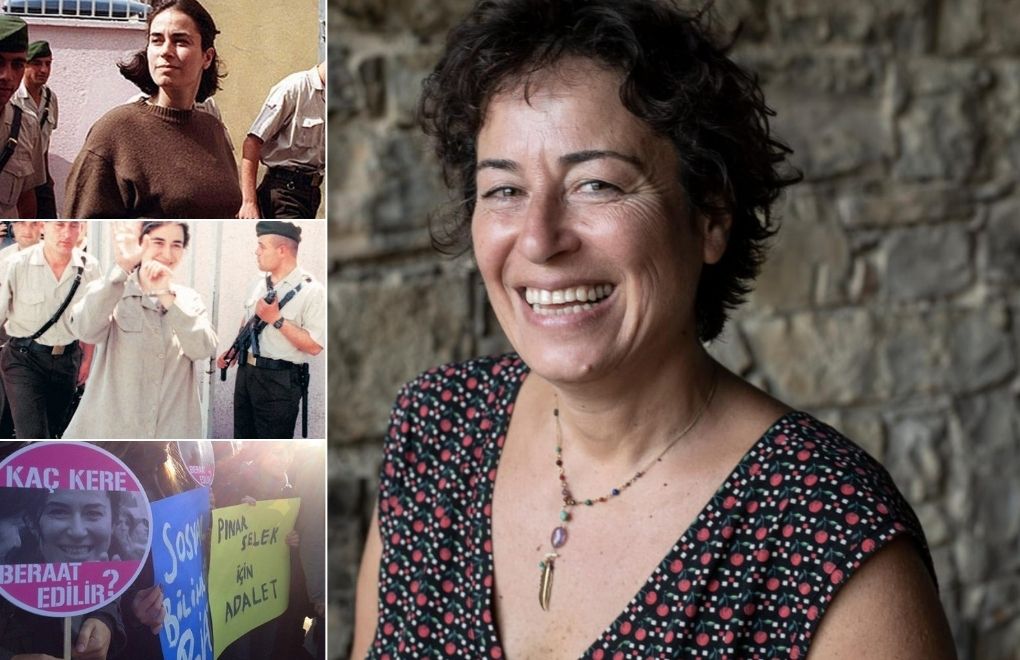
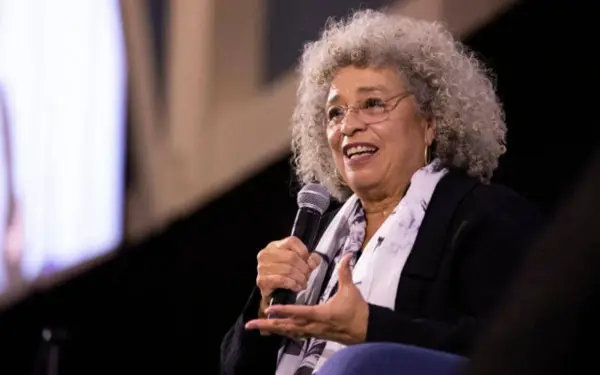
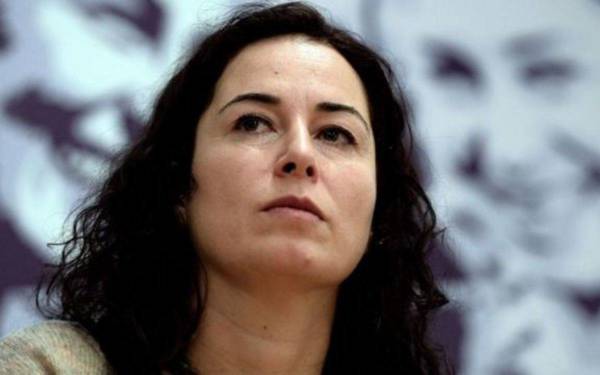
.jpg)
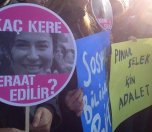
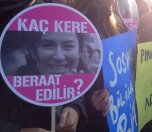
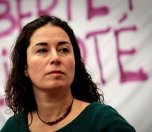
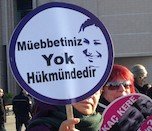
.jpg)